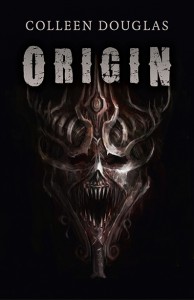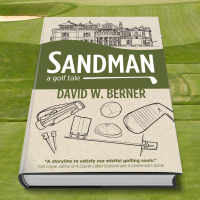
This question was raised by a friend who was present when I got another “form rejection” from an agent .
Ask an agent or editor whether your next novel should have the themes or settings of whatever is currently popular (vampire romance, suburban porn, etc.) and they’ll invariably say: ‘No, just write what you want.’ They’ll justify this by saying the time to print of a new book, especially by a new author, is one or two years, that popular trends will change, and nobody can spot a winner. Then they go ahead and publish more vampire romance and talk about how they can pull a manuscript out of the slush pile and into the shops in just a few weeks now that suburban porn is selling like hot – um – buns.
The conversation turned to writing for the “popular mainstream” and since I am influenced by the likes of HP Lovecraft, Clark Ashton Smith and Brian Lumley to name a few, why was I not writing from these themes? The simple answer is admiration and emulation are different things. Take the vampire for example.
Honestly, I struggle with vamp books. Don't get me wrong, I have enjoyed them in the past - everything from Stoker through to Rice, and I am interested in how the image of the vamp has evolved in the last 100+ years- But...
Now that we have moved from monster through a creature with almost human-like sensibilities, is there anything new to add to the mythos? In it's current Romantic guise, does the image of the vamp qualify as horror? (This is a personal question I ask myself)
As part of my university dissertation, I read "The Liquid Dreams of Vampires" by Riccardo which considers the image of the vamp and what it means. It's a very interesting book, but it does make you realise the limited format of the vamp (and you can by turn apply that to zombies and other popular monster formats).
Whilst dependent on the scenario, Is the modern vamp stories Horror, or do they come more into Dark Fantasy? In terms of sales, did that bubble not pop in September 2011?
My answer to this: Certainly there is a place for the original vampire, Brian Lumley for example exploits the mythos incorporating elements from historical fact and weaves in convincing plot-lines, sometimes emulating reality so well that it becomes difficult to decipher fact from fiction. For me these are the driving forces that set these vamps apart from whatever is the new "craze". Being one who has never been particularly influenced by the "norm" I do relish the "unconventional", therefore yes I say there can be a place for the vamp where it's image still exist succinct from "romantic" and other "man-made" for lack of a better word, influences.
The vampire will always be a monster of legend. I think the "modernising" elements were as a means to introduce an old premise to a new audience. Whether this was done successfully is certainly a contention for debate. It's almost the same to say was it what Stoker had envisaged when he first created Dracula?
So it goes. Publishing is a business; in the main it follows the fleet. It’s good advice but I don’t think those are the real reasons not to write to the market. Or rather, they may well be good reasons for publishers and agents – after all, what they want is what they want. However, those are not the primary ones for writers.
The world is full of people who want you to do what they want you to do. If it’s the boss in your day job, fair enough. To be fair, publishers are not those people. Yes, they want you to work to a deadline, again, fair enough, but what they really want you to do is what most of them* can’t do themselves – write a brilliant book.
Writing for other people means you are going to do two things:
- Second-guess what they want you to do
- Not write the story you want to write.
You’ll never be able to get far enough inside another person’s head to give them exactly what they want. They’ll say ‘The same, but different.’ Your different will be too much or not enough. Carmine Darke is a rangy, determined blonde, they wanted petite vulnerability; she flies an underground airship, they wanted hot air balloons. You’ll focus so hard on that process you’ll be completely diverted from what you should be doing – writing the best story you can.
* Though some do write very well (Rule #2)
** Will Self put it very well in an interview in the Guardian:
“I don’t really write for readers … I think that’s the defining characteristic of being serious as a writer. I mean, I’ve said in the past I write for myself. That’s probably some kind of insane
egotism but I actually think that’s the only way to proceed – to write what you think you have to write. I write desperately trying to keep myself amused or engaged in what I’m doing and in the
world. And if people like it, great, and if they don’t like it, well, that’s that – what can you do? You can’t go round and hold a gun to their head.”
http://www.theguardian.com/books/2012/aug/05/will-self-umbrella-booker-interview
Categories:
0 comments on this article








